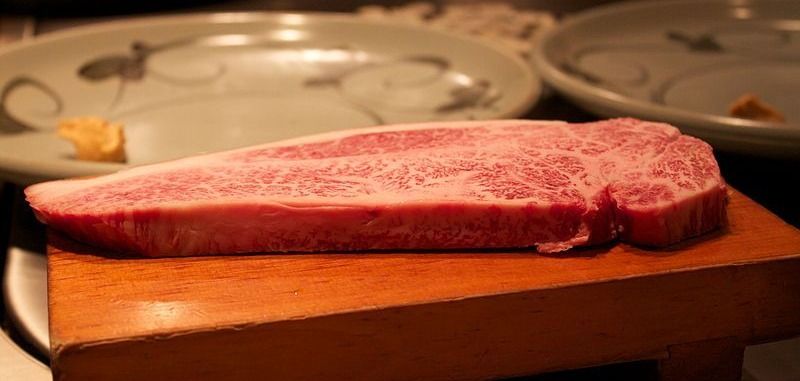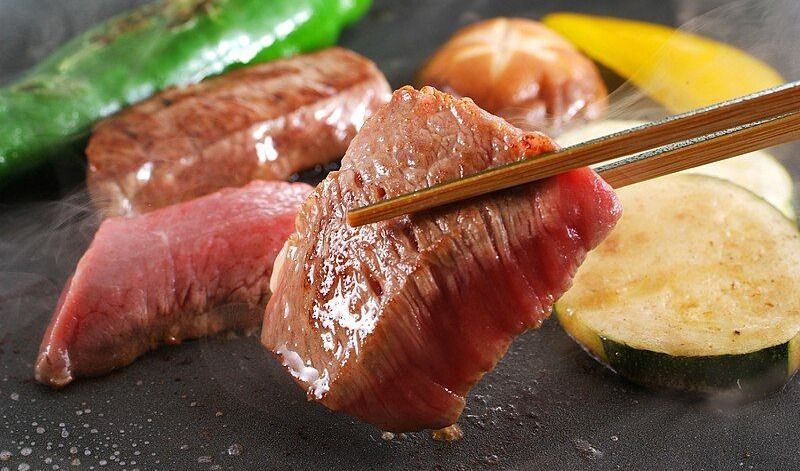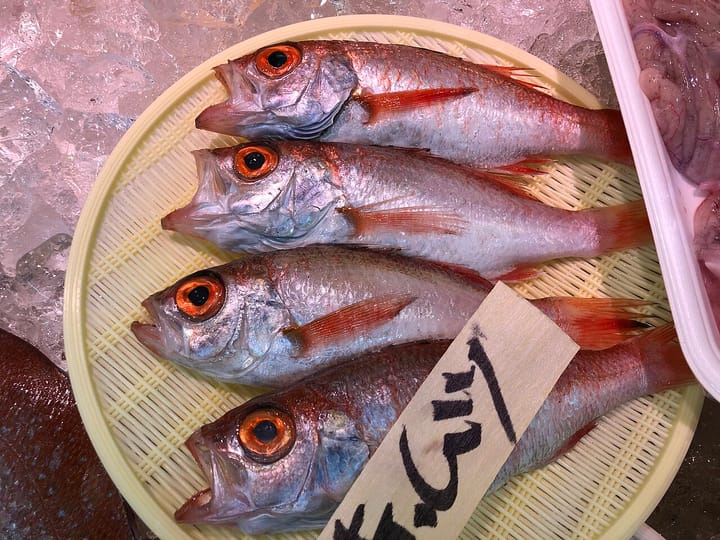What Is The Most Expensive A5 Wagyu Steak?
Discover the World's Rarest and Most Expensive A5 Wagyu Beef

We're about to guide you through some of the priciest wagyu steaks in the world, assisting you in ensuring you get value for your money.
Steaks are not a one-size-fits-all affair. True steak connoisseurs understand that depending on the cuts and the type of beef, some steaks are considerably more tender and flavorful than others either by - a fact that is often reflected in their cost. The best methods to unlock these flavors include pan-searing, grilling, or aging the meat.
The quality of a steak is determined by several factors, such as the color of the meat and fat, the amount of marbling (the white flecks of fat within the muscle tissue), among others. Therefore, various grading systems exist to denote steak quality. The higher the steak's grade, the more substantial the price you're likely to pay for it.
What is Wagyu A5 Grade?
The A5 classification attributed to Wagyu beef signifies a measure of quality assigned to this Japanese delicacy — "Wagyu" literally means "Japanese cow."
Just as the USDA Prime label indicates the highest quality beef in the United States, A5 is the peak rating conferred upon Japanese beef.
In this rating, the letter "A" corresponds to the yield, whereas the number "5" represents the beef's quality, marbling, and other characteristics. To qualify for the A5 label, the beef must attain a minimum marbling score of 8 out of 12.
Conversely, American USDA Prime beef necessitates a marbling score of only 4.
A5 Wagyu holds a special place in the menu of Aragawa, a globally recognized Tokyo restaurant known for its high-end culinary offerings.
Naming conventions for Wagyu steaks are based on their regional origin within Japan. In this article, we've assembled a list featuring the top most expensive A5 Wagyu beef type.

Top 9 Most Expensive Wagyu Steak In The World
Matsusaka Sirloin
Price: $515 per kg
The pursuit of high marbling unites all Wagyu producers, although methods may differ across farms and regions.
Among over 300 varieties of Wagyu, standout cuts originate from 10 distinguished regions. One such sought-after variety is the Matsusaka Wagyu from Mie Prefecture.
A distinctive feature of Matsusaka-raised cattle is their slaughter before they reach breeding age. This practice of producing beef from virgin cattle results in an exceptionally flavorful steak, noted for its tenderness and abundant marbling.
Back in 2002, a single Matsusaka cow fetched a price of 50 million yen, approximately equivalent to $400,000.
Hokkaido Strip Or Ribeye
Price: $460.00/kg (strip) – $530.00/kg (ribeye)
The esteemed Wagyu, nurtured by the renowned dermatologist Dr. Asanuma, is dubbed "Cult Wagyu" but is more famously known as Hokkaido Snow Beef.
Situated adjacent to the pristine Lake Utonai wetlands, Château Uenae prides itself on maintaining the natural beauty of the Yuufutsu Wilderness, an area protected under the Ramsar Convention.
The moniker "Hokkaido Snow Beef" derives from the cattle's upbringing in Hokkaido's harsh cold, with the beef's marbling reminiscent of snow crystals. Until 2014, this beef, a product of Château Uenae's exclusive ranch with limited cattle numbers, had never ventured beyond Hokkaido's borders.
The farm embraces a comprehensive approach, overseeing the entire Wagyu production process; from breeding and raising calves born from Hokkaido's elite bulls and Château Uenae's superior lineage to the final shipment as Hokkaido Snow Beef.
Despite its global acclaim, the ranch remains committed to quality, ensuring only select cattle become the renowned Hokkaido Snow Beef.
Sendai Ribeye
Price: $650.00/kg
Sendai Beef owes its distinctive flavor to the cattle's diet of top-grade rice straw, sourced from prominent rice variants like Sasanishiki and Hitomebore of Miyagi, nurtured with pristine waters. This beef is a testament to Miyagi's rich natural bounty.
Kawaguchi farm, situated adjacent to Lake Izunuma—a haven for migratory birds and Japan's second Ramsar Convention-designated site after Lake Utonai in Hokkaido—takes pride in its meticulous approach to cattle rearing.
They emphasize the esteemed Yasufukuhisa lineage and nurture their cattle on a unique blend of grains, supplemented with Miyakoganemochi rice flour, a specialty of the farm.
Eschewing mechanized feeding, the farm's caretakers manually adjust and administer each cow's diet, ensuring a tailored approach to their nourishment.
While Sendai Wagyu is recognized for having the strictest grading criteria among Japan's renowned Wagyu brands, the exceptional balance of marbling and meat quality from the acclaimed Kawaguchi Farm elevates Sendai Craft Wagyu to an art form.
Maezawa Filet Mignon Or Ribeye
Price: $700.00/kg
Ogata farms, renowned for their Maesawa Beef, set the gold standard for beef quality in Japan.
To experience Wagyu from this farm is a singular delight. Through generations of dedication, Ogata has established itself as a premier beef producer in Japan.
For beef to bear the Maesawa label, Ogata ensures rigorous quality benchmarks, prioritizing a serene environment for the cattle. This meticulous care translates into exceptionally smooth and tender beef.
The cattle are nurtured without hormones, and their diet consists of beer lees sourced from regional beer, whiskey, and soy.
This not only nourishes the cattle but infuses the beef with a subtle sweet undertone. The welfare of the cattle is paramount, with provisions in place for them to rest without disruptions, truly allowing them to "rest tranquilly."
The BMS 12 Ogata is among the most elite. Achieving a Beef Marbling Standard (BMS) score of 12 requires the beef to have a minimum of 56.3% Intramuscular Fat (IMF), a testament to its unparalleled marbling.
This is, without a doubt, one of the most sought-after and opulent steaks available.
Kobe Strip or Ribeye
Price: $850 per kg (Strip or Ribeye)
Kobe beef originates from a specific type of Wagyu cattle known as Tajima-Gyu, meticulously reared in Hyogo prefecture. The name "Kobe beef" is derived from Kobe, the capital city of Hyogo.
The cattle's upbringing is given extraordinary attention, with a diet primarily composed of forage, grasses, and rice straw, enriched with grains like corn and barley, soybean, and wheat bran. Occasionally, breeders may even introduce beer or sake.
This specialized care, combined with extended fattening periods, leads to an unmatched marbling quality in Wagyu.
The fat content in Kobe beef has a unique characteristic - it liquefies at a lower temperature than most other beef, offering a distinct, buttery richness.
For those with the means, Kobe ribeye is a sought-after treat, revered for its deep umami taste coupled with a texture that melds firmness with buttery softness. Its hallmark is its rich, deep red shade, intricately veined with dense marbling.
Boasting some of the world's most intricate marbling, Kobe beef provides a luxuriously creamy and flavorful experience.
Due to the rigorous standards upheld in its production and the inherent scarcity — with just around 3,000 cattle being certified as genuine Kobe annually — this beef commands a premium price, making it one of the most sought-after and priciest beef varieties globally.
Omi Ribeye or Filet Mignon
Price: $570.00 per kg (ribeye) – $ 910.00 per kg (filet)
With a history spanning centuries, Omi beef stands out among the various wagyu varieties in Japan. Legend has it that over four centuries ago, this beef was served as a gesture of hospitality to the famed samurai, Toyotomi Hideyoshi.
By the Edo era, it was a treasured gift offered to the Shogun. It wasn't until the Meiji era, when Japan opened its doors to the world, that the general populace began to savor this delicacy.
Omi beef is a testament to the dedicated care of farmers in the naturally endowed Shiga Prefecture. Drawing from the pristine waters of the surrounding Lake Biwa, Japan's grandest freshwater lake, the region offers an ideal environment for cattle rearing.
Embracing a sustainable approach, Shiga has woven an eco-friendly cycle in cattle farming. Local producers often rely on indigenous feed, like Omi rice straws, to nourish their herds.
This combination of a favorable environment, expert feeding practices, and hands-on care gives Omi beef its signature taste: a harmonious blend of rich flavor with subtly sweet and aromatic fat.
Hida-Gyu Filet Mignon
Price: $910 per kg
Beef derived from the black-haired Japanese cattle breed, reared in Gifu Prefecture for a period no less than 14 months, is labeled as "Hida-gyu" or Hida Beef.
For this distinction, it must be validated and recognized with a Yield Score of either Grade A or B by the Hida Beef Brand Promotion Conference.
Furthermore, the Japan Meat Grading Association must grade its Firmness and Texture at levels 5, 4, or 3. Beef from Hida that doesn't meet these exact specifications is termed "Hida Wagyu."
Hida-Gyu's history began relatively recently. In 1981, a farmer started with just one bull, Yasufuku, believed to possess the perfect genetics for producing offspring with exceptional meat quality.
Remarkably, this bull was credited with siring 39,000 calves in his lifetime. The ensuing recognition gave rise to the Hida Beef Brand Promotion Conference in 1988, marking the official commencement of the Hida Beef legacy.
Hida-Gyu features is distinguished by its striking marbled patterns, evident not just in the steaks but also in the flank, shoulder, and rump cuts.
When simmered alongside vegetables, the marbled fat envelops the meat, sealing in the juices and aromas, ensuring a tender consistency.
For a truly melt-in-the-mouth experience, one might opt for either the sirloin or the fillet. Hida-Gyu can also be enjoyed in traditional Japanese dishes such as Sukiyaki, Shabu-shabu, and Yakiniku when thinly sliced.
Hitachi Filet Mignon, Strip or Ribeye
Price: $650 per kg (Filet / Ribeye) - $1100 per kg (Filet)
Hitachi beef, often referred to as "Hitachigyu," was once commonly known by locals as "Hitachiushi." Those familiar with its long-standing history still use the term "Hitachiushi."
Both "Hitachi Gyu" and "Hitachi Ushi" names are trademarked. The term "Hitachi Wagyu" derives its name from its place of origin, the city of Hitachi in Ibaraki Prefecture, coupled with the Japanese term "Wagyu or Gyu," which translates to beef.
Different cuts of Hitachi beef offer unique characteristics, allowing you to select the perfect piece for your chosen dish. Notably, cuts from the rib, sirloin, filet, and rump exhibit tender marbling.
These sections provide a harmonious balance of lean meat and just the right amount of fat, enhancing the overall flavor and texture of the beef.
Olive Wagyu
Price: $1100 per kg
Olive wagyu, celebrated as one of the globe's most exclusive beef varieties, has its distinct taste rooted in a diet infused with dried olive by-products.
This ingenious feeding method was pioneered by Masaki Ishii back in 2006. The Olive Wagyu holds its roots in a distinct region in Japan: the island of Shodoshima in Kagawa Prefecture.
What distinguishes Olive Wagyu even further is the unique feed these cattle consume, primarily created from dried and toasted olive remnants.
Shodoshima's prominence in olive oil production harmonizes with the upbringing of these cattle. By utilizing olive oil production waste, not only is sustainability promoted, but it also imparts a signature taste to the beef.
Olive Wagyu stands out due to the cows' specialized diet, resulting in a distinct light-yellow marbling. Boasting a remarkable 65.2% oleic acid content, this beef has an unmatched richness in healthy fats compared to any other worldwide.
This elevated fat level imparts an extraordinary melt-in-your-mouth experience. Its flavor profile is deeper in umami compared to other Wagyu varieties.
With a limited population of just 2,500 Olive Wagyu cattle and only a handful processed monthly, it's potentially one of the most exclusive steaks available globally.


